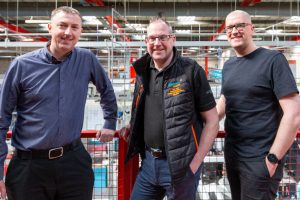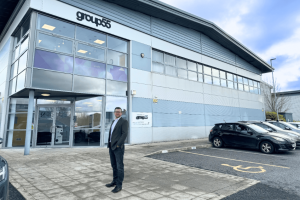Slow growth to continue says top economist

THE UK economy should continue its slow but steady course of growth throughout the remainder of 2011 and into 2012, according to a leading economist.
Tom Vosa, head of market economics at Yorkshire Bank’s parent company National Australia Bank, said that he expects growth in the third quarter of 2011 to be “towards the lower end” of analysts’ estimates of GDP growth of 0.4-0.7%.
Speaking at an economic lunch hosted by Yorkshire Bank in Manchester earlier this month, Vosa described himself as “a scared optimist” when predicting future trends, stating that political uncertainty – particularly in Europe – was having a knock-on effect on the markets.
“I’m optimistic about the world economy and I’m fairly optimistic about the UK.”
Vosa predicted that growth for will reach 1.3% by the end of 2011 and would increase to 2% next year, but that “real” GDP growth will feel stronger as the impact that the VAT rise introduced back in January had on growth is phased out.
This will also have a positive impact on inflation, Vosa argues, which could peak at 5% next month before dropping back by around 1.5% at the beginning of next year.
Inflation should also benefit from a gradual weakening in commodity prices, particularly oil, Vosa said, which remains highly valued when compared with historic UK and US GDP levels.
Vosa said that a sharp drop in oil prices could provide as similar a boost to the economy as a tax cut as it would give consumers more disposable income. However, he added that the Organisation of Petroleum Exporting Countries (OPEC) budgets its own expenditure for development based on a price range of $90-$120 per barrel (it currently stands at just over $110) and any drop below $90 would likely to be met with a reduction in supply to maintain prices.
He said the Japanese earthquake and tsunami had impacted on global supply chains more than initially anticipated, contributing to a slowdown in manufacturing, where activity in the UK remains flat. He said there is currently “little evidence” of an export-led recovery, particularly if Europe remained the focus for exporters.
“We need to change the direction of trade,” he said. “We still trade more with Ireland than with Brazil, Russia or China. The UK seems to be particularly bad at changing that.”
Perhaps the major stumbling block preventing many private sector firms from investing, though, is an uncertainty that Mr Vosa believes is partly being triggered by an overly-negative reporting of current conditions.
“Companies seem to think that if things have been good in this quarter, they may tip over in the next.
“Everyone fears there is worse to come, even though next year will be better than this year – if only because inflation should fall.”
The event was hosted by John Newman, area director for corporate banking at Yorkshire Bank’s Corporate & Structured finance arm, and guests included Nick Kelsall, chief executive of listed consumer products company Norcros and John Gittins, finance director of Fairpoint.
Simon Woolley, founder of corporate law firm EOS, Nigel Dale from Eversheds and Matt Morgan from Pinsent Masons also took part in the discussion.









